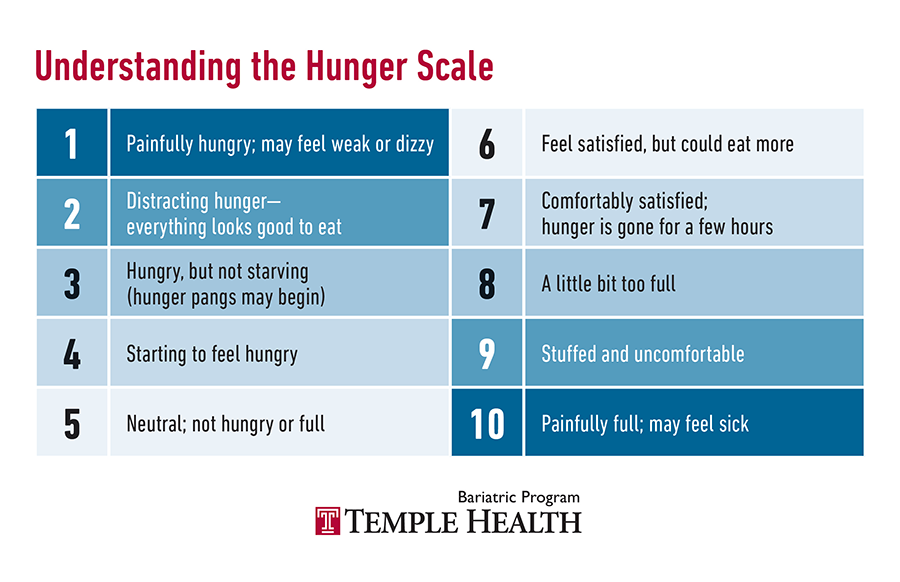Part of my job as a bariatric surgeon is helping patients prepare for life before and after weight-loss surgery. That includes encouraging them to pay attention to their natural hunger and fullness cues.
Many of my patients think that they do this already. But when we talk more, they realize they may sometimes eat in response to certain emotions or cues and not because their body truly needs fuel.
Like many of us, they might reach for a snack when they’re bored, stressed or sad. And many realize they have habits of eating at certain times — whether they’re physically hungry or not.
It can be easy for anyone to fall into these habits. But paying attention to the body’s physical hunger signals is a key skill for weight management.
People often find they aren’t very hungry for the first several months after bariatric surgery, but eventually their appetite starts to come back. And when it does, learning to tell the difference between true hunger and simply being “in the mood” to eat can help them to stay on track toward their wellness goals.
How to Know if You’re Truly Hungry
If it’s been a long time since you’ve noticed your body’s hunger signals, you’re not alone. They can be easy to lose track of. True hunger gives off physical signs that get stronger the longer you go without eating.
Physical hunger
Your stomach might start off grumbling or gurgling. Wait a little longer, and your energy levels might start to dip. Wait too long, and feelings of crankiness, weakness or even lightheadedness start to move in.
Physical hunger has another important marker: When you’re truly hungry, you’re flexible about what you can eat. It doesn’t have to be a chocolate brownie or a slice of pizza.
Emotional hunger
Emotional hunger, on the other hand, is a little different. It tends to hit us full force right away, and we tend to crave something very specific. Wanting a snickerdoodle when passing a certain bakery or a bowl of mac and cheese after a hard day are good examples. In any case, there’s no stomach rumbling or gurgling. That need-to-eat feeling may seem real, but it’s not.
Reading hunger signals
I encourage my patients to “check in” with their bodies when they get the urge to eat. That can mean asking themselves questions like:
- Do I have physical feelings of hunger — like a rumbly stomach or low energy?
- Can I be flexible with what I eat to satisfy that hunger?
Answering “yes” means the body is physically hungry. In that case, it’s a good idea to eat a wholesome meal or snack, preferably one that’s rich in protein as it will help you feel full faster.
If a patient answers “no” to the questions above and isn’t physically hungry, then it’s a signal that it’s not time to eat. To understand this better, dietitians on our bariatric team use a visual hunger scale to help patients understand their level of hunger:


